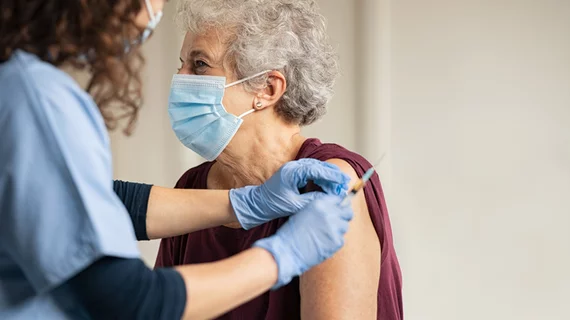FDA panel recommends new COVID-19 booster
The U.S. Food and Drug Administration (FDA) has agreed in a unanimous vote to recommend an update of the formula for the COVID-19 vaccine in time for the annual booster campaign this fall.
The new formula is aimed at curbing the JN.1 variant of the virus, which the FDA’s committee of independent advisors said is causing the majority of infections. Officially, the decision by the FDA is a request to drug manufacturers to change course—that is, if the recommendation is approved.
The committee’s recommendation now moves up the ladder at the FDA for approval. What’s new in this scenario is the booster formula would be monovalent, to counter the JN.1 variant specifically. Previous iterations of COVID-19 boosters have been formulated to provide immunity against two variants.
“It’s becoming clear that the ideal timing for a vaccine composition decision remains elusive,” said Jerry Weir, an official with the FDA’s vaccine division.
The decision by the independent advisers follows the World Health Organization recommendation that COVID-19 vaccines focus on the JN.1 variant globally. Drug manufacturers Pfizer, Moderna and Novavax informed the committee they were prepared for the shift, should the FDA approve the recommendation.
COVID-19 hospitalization rates have been trending downward after a peak in January, according to data from the Centers for Disease Control and Prevention. Deaths currently sit at fewer than 300 a week. However, hospitalizations and deaths tend to trend upward as winter approaches, especially in Americans 65 and older.
Booster uptake rates have been low. As of May 2024, less than 23% of adults opted to get the 2023 version of the COVID-19 shot, according to CDC statistics.

